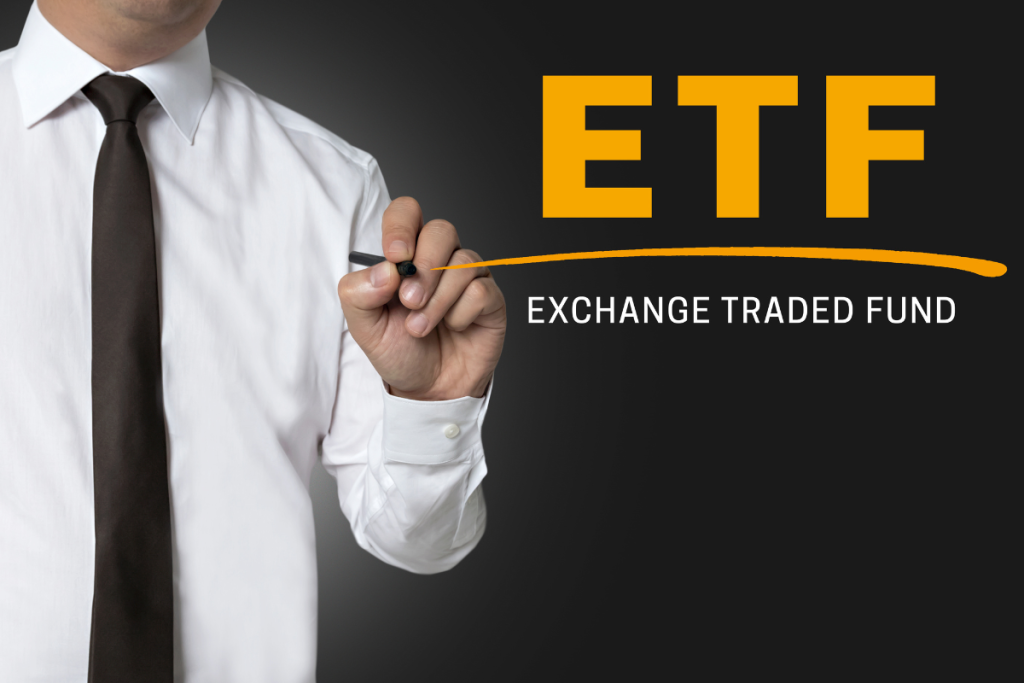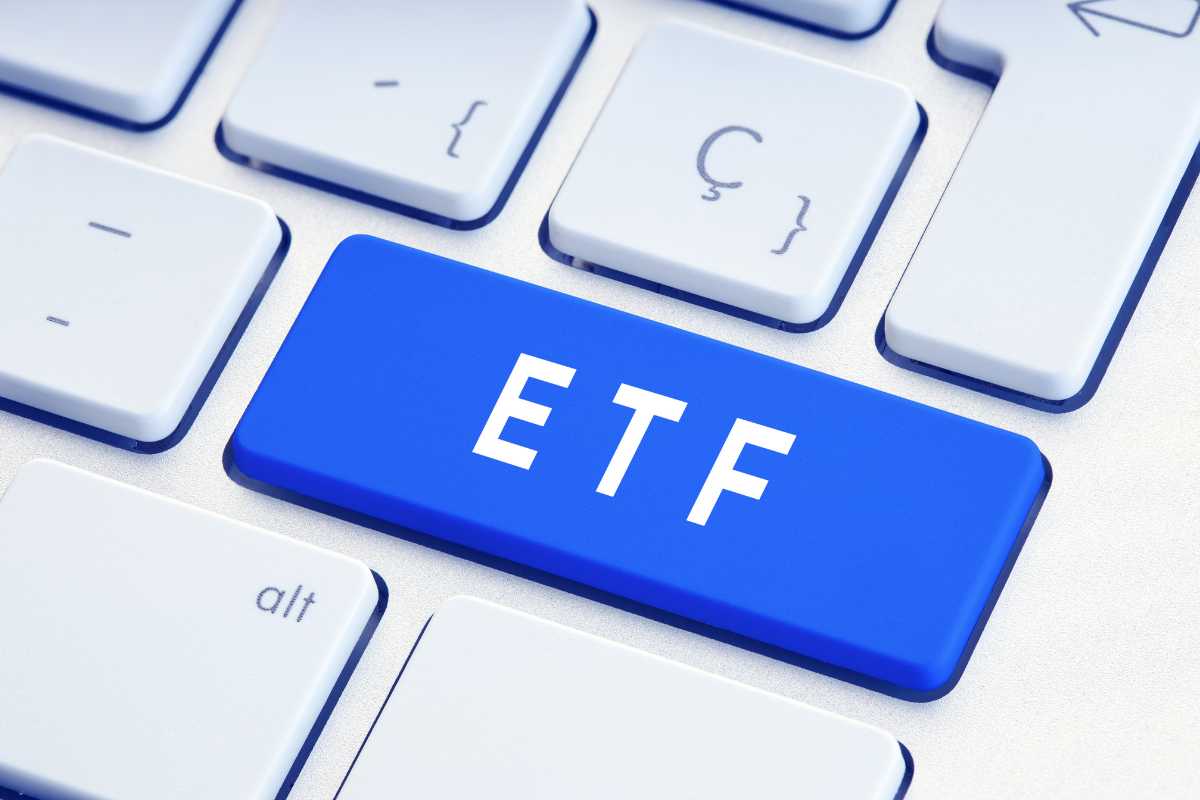Are you new to the world of investing and keen to get started in Singapore’s dynamic market? Exchange Traded Funds (ETFs) could be just the ticket! Often hailed as an ideal starting point for beginners, ETFs offer a simple yet effective way to diversify your portfolio without the complexities of picking individual stocks. But with so many options available, where do you begin?
This comprehensive guide, tailored for the total beginner in Singapore, will demystify ETFs, explain why they’re a smart choice for new investors, and crucially, highlight some of the top ETFs to consider for your portfolio in 2025. We’ll break down the jargon and give you the confidence to take your first steps into the exciting world of ETF investing.
What Exactly Are ETFs and Why Are They Good for Beginners?
Before we dive into the top picks, let’s establish the basics. An ETF is a type of investment fund that holds a collection of assets – be it stocks, bonds, or commodities – and trades on a stock exchange, much like a regular share. When you buy an ETF, you’re essentially buying a small piece of all the underlying assets the fund holds.
Here’s why they’re particularly appealing for new investors:
Diversification Made Easy: Instead of buying numerous individual stocks to spread your risk, a single ETF can give you exposure to an entire market, sector, or asset class. For instance, an ETF tracking the Straits Times Index (STI) gives you exposure to the top 30 companies in Singapore in one go.
Lower Costs: Compared to actively managed funds, ETFs generally boast lower expense ratios (management fees) because they often aim to simply track an index rather than actively trying to outperform it. This means more of your money stays invested.
Liquidity and Flexibility: ETFs can be bought and sold throughout the trading day, just like stocks, offering greater flexibility than traditional mutual funds (unit trusts) which are typically priced only once a day.
Transparency: Most ETFs disclose their holdings daily, so you always know what you’re invested in.
Tax Efficiency: ETFs are generally more tax-efficient than mutual funds due to their unique structure and the way they handle redemptions.
Understanding ETF Types and Structures
As a beginner, it’s important to understand that not all ETFs are created equal. There are several types you’ll encounter:
Index ETFs: These track a specific market index, such as the STI or S&P 500. They’re passive investments that aim to replicate the performance of their underlying index.
Sector ETFs: These focus on specific industries like technology, healthcare, or real estate. They offer targeted exposure but come with higher concentration risk.
Bond ETFs: These invest in fixed-income securities and are generally considered more conservative than stock ETFs.
Commodity ETFs: These track the price of physical commodities like gold or oil, providing diversification beyond traditional stocks and bonds.
Dividend ETFs: These focus on companies that pay regular dividends, making them attractive for income-seeking investors.
Getting Started: Your Step-by-Step Guide to Investing in ETFs in Singapore
Ready to open your investment account? Here’s how to begin:
1. Assess Your Risk Tolerance and Financial Goals: Before investing a single dollar, understand what you’re hoping to achieve (e.g., long-term growth for retirement, income generation) and how much risk you’re comfortable taking. Consider your investment timeline – are you investing for 5 years or 25 years?
2. Build Your Emergency Fund First: Before investing in ETFs, ensure you have 3-6 months of living expenses in a high-yield savings account. This provides a safety net and prevents you from having to sell investments during market downturns.
3. Open a Brokerage Account: You’ll need an account with a reputable stockbroker in Singapore. Popular choices include Interactive Brokers, Tiger Brokers, and Moomoo Singapore, which often offer competitive fees and user-friendly platforms. Some local banks also offer investment services, though they may have higher fees.
4. Consider a Regular Savings Plan (RSP): For beginners, RSPs are an excellent way to invest consistently over time, regardless of market fluctuations. This “dollar-cost averaging” strategy helps reduce the impact of market volatility by investing a fixed amount regularly. Many brokerages offer RSPs with minimum investments as low as $100 monthly.
5. Research and Select Your ETFs: This is where our “Top 10” list comes in! Look at the ETF’s underlying assets, expense ratio, liquidity, and track record. Don’t forget to check the ETF’s methodology and whether it’s physically backed or uses derivatives.
6. Place Your Order: Once you’ve chosen an ETF, you can place a buy order through your brokerage account. Consider using limit orders to control the price you pay.
Top 10 ETFs in Singapore for Beginners (2025)
While investment performance is never guaranteed and past performance is not indicative of future results, these ETFs are often considered strong contenders for beginners in Singapore due to their diversification, lower costs, and exposure to key markets or asset classes.
Please note: This list is for informational purposes only and does not constitute financial advice. Always conduct your own thorough research or consult with a qualified financial advisor before making any investment decisions.
1. SPDR Straits Times Index ETF (ES3 / O87)
- What it tracks: The Straits Times Index (STI), Singapore’s benchmark stock market index, comprising the top 30 companies listed on the Singapore Exchange (SGX)
- Why it’s good for beginners: Provides broad exposure to the Singapore economy with a single investment. A foundational choice for local market exposure
- Key Consideration: Heavily weighted towards financials and real estate
2. Nikko AM Singapore STI ETF (G3B)
- What it tracks: Also tracks the Straits Times Index (STI)
- Why it’s good for beginners: Similar to ES3, offering broad Singapore market exposure. Often compared to ES3 for slightly differing expense ratios and tracking performance
3. Lion-OCBC Securities Hang Seng TECH ETF (HST)
- What it tracks: Major technology companies listed in Hong Kong
- Why it’s good for beginners: Provides exposure to the growing Asian technology sector. Ideal for those looking for growth potential beyond Singapore
- Key Consideration: Higher volatility compared to broad market indices due to sector concentration
4. SPDR S&P 500 ETF Trust (S27)
- What it tracks: The S&P 500 Index, which represents 500 of the largest publicly traded companies in the United States
- Why it’s good for beginners: Offers diversified exposure to the robust US stock market, a cornerstone of many global portfolios
- Key Consideration: Subject to foreign exchange risk if your base currency is SGD
5. iShares Core S&P 500 ETF (IVV) & 6. Vanguard S&P 500 ETF (VOO)
- What they track: Also the S&P 500 Index
- Why they’re good for beginners: Excellent alternatives to S27, often cited for their extremely low expense ratios, making them highly cost-effective for long-term US market exposure
7. ABF Singapore Bond Index Fund (A35)
- What it tracks: A portfolio of high-quality Singapore government bonds and other Singapore-dollar denominated bonds
- Why it’s good for beginners: Provides stability and income to a portfolio, acting as a diversifier against equity market volatility. Good for a more conservative approach
8. CSOP iEdge S-REIT Leaders Index ETF (SRT)
- What it tracks: The performance of leading Singapore Real Estate Investment Trusts (S-REITs)
- Why it’s good for beginners: Offers exposure to Singapore’s property market with potential for regular income through dividends
- Key Consideration: REITs can be sensitive to interest rate changes
9. Lion-Phillip S-REIT ETF (CLR)
- What it tracks: Another ETF providing exposure to S-REITs, similar to SRT
- Why it’s good for beginners: Provides an alternative for S-REIT exposure, allowing investors to compare performance and fees
10. SPDR Gold Shares (O87)
- What it tracks: The price of physical gold
- Why it’s good for beginners: Acts as a hedge against inflation and market uncertainty, providing a defensive asset in a diversified portfolio
- Key Consideration: Gold prices can be volatile and do not generate income
Building Your First ETF Portfolio
As a beginner, consider starting with a simple three-fund portfolio:
- 60% broad market equity ETF (like ES3 for Singapore exposure or S27 for US exposure)
- 30% international/emerging markets ETF for global diversification
- 10% bond ETF for stability
This allocation can be adjusted based on your age, risk tolerance, and investment goals. Younger investors might skew more heavily toward equities, while those closer to retirement might prefer a higher bond allocation.
Important Considerations for Beginner ETF Investors
Expense Ratio: Always look for ETFs with low expense ratios, as these fees eat into your returns over time. A difference of 0.5% annually can significantly impact your wealth over decades.
Tracking Error: For index-tracking ETFs, a lower tracking error indicates that the ETF is doing a good job of replicating the performance of its underlying index.
Liquidity: Higher trading volume usually means better liquidity, making it easier to buy and sell ETF units at a fair price.
Dividend vs. Accumulating ETFs: Some ETFs pay out dividends, while others (accumulating) automatically reinvest them, which can be tax-efficient and beneficial for long-term growth.
Currency Risk: If you’re investing in ETFs that hold assets denominated in foreign currencies (e.g., USD-denominated S&P 500 ETFs), you’ll be exposed to foreign exchange fluctuations.
SIPs (Specified Investment Products): Be aware that some ETFs, particularly those involving derivatives or complex structures, may be classified as SIPs by the Monetary Authority of Singapore (MAS). You might need to meet certain requirements to invest in them.
Useful Resources for Continuing Your ETF Education
To deepen your understanding of ETFs and investing in Singapore, consider exploring these valuable resources:
- Monetary Authority of Singapore (MAS) MoneySense: https://www.moneysense.gov.sg – Singapore’s national financial education program offering comprehensive guides on investing fundamentals and ETF basics.
- SGX My Gateway: https://www.sgx.com/education – Singapore Exchange’s educational portal providing detailed information about ETFs listed on SGX, market data, and investment tutorials.
Conclusion

Investing in ETFs in Singapore offers a fantastic entry point for beginners looking to build wealth and diversify their portfolios. By understanding the basics and carefully selecting ETFs that align with your financial goals and risk tolerance, you can set yourself on a solid path to becoming a successful investor. Remember to start small, invest consistently, and continuously educate yourself about the markets. The key to successful ETF investing is patience, discipline, and a long-term perspective. Happy investing!





